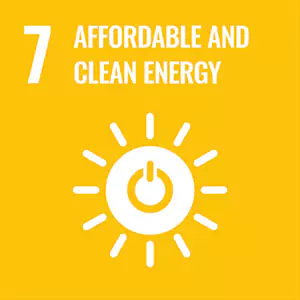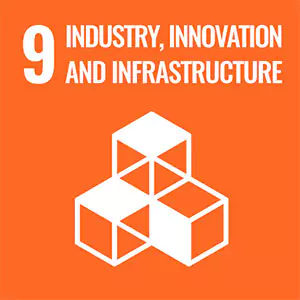MSc Electric Power Engineering
The master's programme in Electric Power Engineering delivers a solid understanding of the electric power engineering domain and skills to contribute to more sustainable energy solutions. It offers excellent flexibility to specialise in electric energy conversion, electrotechnical design, power system control and electricity markets. Graduates find career opportunities at the forefront of advancements in power components and power systems.

Electric Power Engineering at KTH
The global demand for affordable and sustainable resources has created a significant need for electrical engineers and researchers to provide electricity and to build new smart solutions that enable more sustainable energy management. This is the programme for those who want to develop components, systems and management of electric power.
The master's programme in Electric Power Engineering covers the following areas:
- Power electronics
- Electrical machines
- Electrotechnical design
- Power system operation and control
- Power system planning and electricity markets
This programme enables you to develop a comprehensive understanding of the field and specialise in one or more areas, providing a sound foundation to enter a professional role in industry or academia.
This is a two-year programme (120 ECTS credits) given in English. Graduates are awarded the degree of Master of Science. The programme is given mainly at KTH Campus in Stockholm by the School of Electrical Engineering and Computer Science (at KTH).
Year 1
In the first year, the programme provides a good solid understanding of the electric power engineering domain as a whole. The programme starts with fundamental courses in the area during the first half-year, which will constitute the basis for further specialisations later in the programme. The first year also includes courses complementing the technology-focused courses, where you will explore electric power engineering from an environmental, societal and philosophical perspective.
Year 2
The second year (and the end of the first year) is devoted to specialisation within the field. The programme offers a wide range of courses on topics such as electrotechnical design, electric energy conversion (for example, motors and generators), power system design, power system control, power system planning and electricity markets. The second year also includes project courses and the final master’s degree project.
Master's degree project
The final degree project corresponds to five months of full-time studies is carried out at the university or in industry, anywhere in the world. Degree projects undertaken at the university are part of ongoing research and provide the opportunity to build close contacts with a research group. Projects in collaboration with industrial partners are often related to research and development. The project results in a thesis that you also present in a seminar.
Courses in the programme
The courses in the programme cover topics such as modelling of electrotechnical equipment, power electronics, electrical machines, power system operation and control, power system planning and electricity markets, and management of power systems.
Courses in the programme Electric Power Engineering
Future and career
For decades, KTH and Sweden have been at the forefront of advancements in grid systems, power component technologies, and automation solutions. For a long time, electric power engineers have had a wide selection of career options worldwide. Currently, electric energy is expected to become even more important as the world transitions to more sustainable energy sources as electricity for example is used to replace fossil fuels in industry and transportation. Therefore, there will be a large global need for electric power engineers who can develop new technical components as well as control strategies and planning methods to efficiently utilise these new components.
Graduates from the programme work in electric power utilities and power producers (network planning and market analysis), renewable energy (network analysis and power component design), transport (design and development of drive train as well as charging infrastructure), and the manufacturing industry (component and systems design and development). Consultant work or PhD studies are also possible careers in these areas.
This programme utilises KTH’s strong ties with research and industry leaders such as ABB, Hitachi, Vattenfall, Fortum, Ellevio and the European Institute of Innovation and Technology, to offer students an excellent opportunity to apply their knowledge in practical, industrial applications.
Sustainable development
Graduates from KTH have the knowledge and tools for moving society in a more sustainable direction, as sustainable development is an integral part of all programmes. The three key sustainable development goals addressed by the master's programme in Electric Power Engineering are:



Electric energy is vital to modern society and is one of the critical areas for achieving the UN’s sustainable development goals. Electricity generation stands for a significant part of the emission of greenhouse gases; moreover, the demand for electric energy will likely increase further when developing sustainable solutions in other sectors (for example, transportation and industry). There will be a significant need for improved technology to build cost-efficient, reliable and environmentally friendly energy systems that can support new production and consumption patterns. The electric power engineer will most likely concentrate on goals 7, 9 and 13 but will also be an enabler in achieving almost all other goals.
Faculty and research
The programme in Electric Power Engineering is given by the School of Electrical Engineering and Computer Science at KTH. The field of Electrical Engineering at KTH is currently ranked 23rd in the world by QS. Faculty from the Department of Electric Power and Energy Systems and the Department of Electromagnetic Engineering are the primary teachers in this programme.
Research is the main activity for the teachers in the programme and the research is usually conducted with the industry. It is easy for students to get into contact with teachers/researchers. Moreover, we also invite industry representative to meet with students in various contexts.







